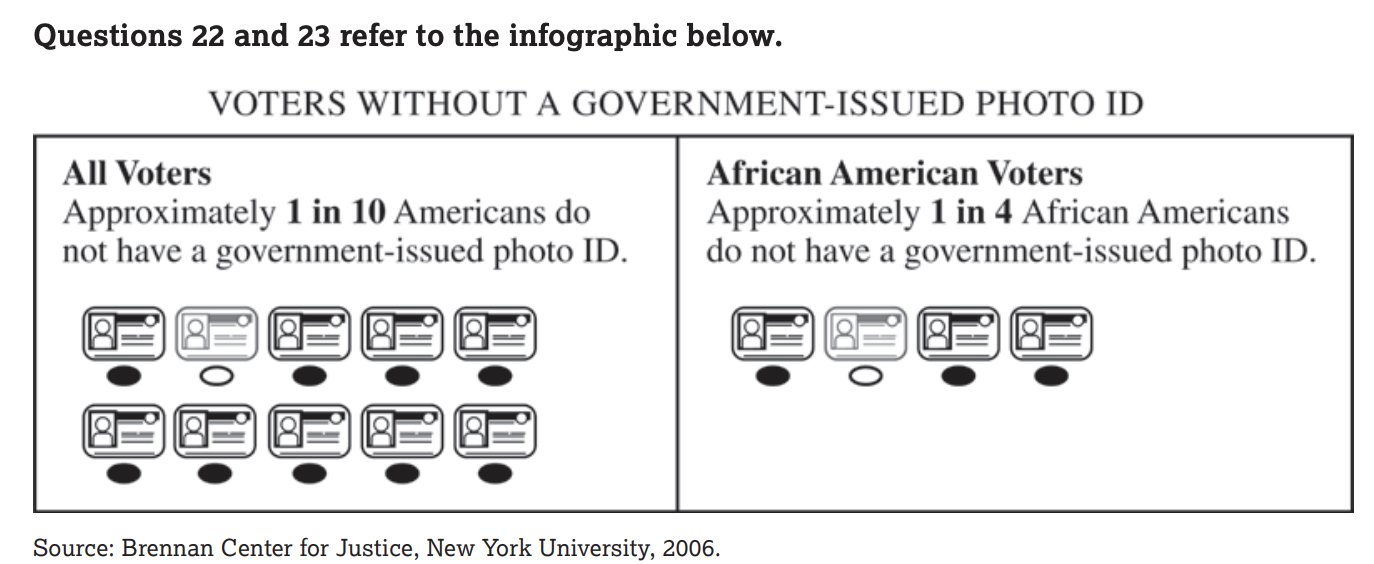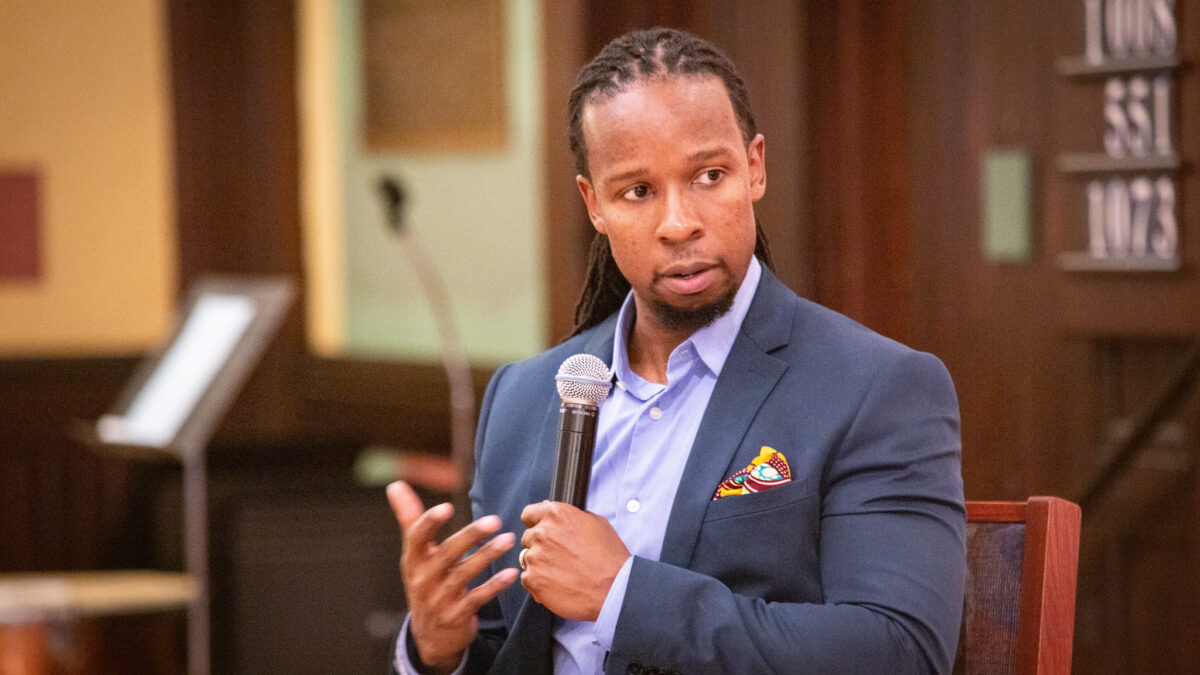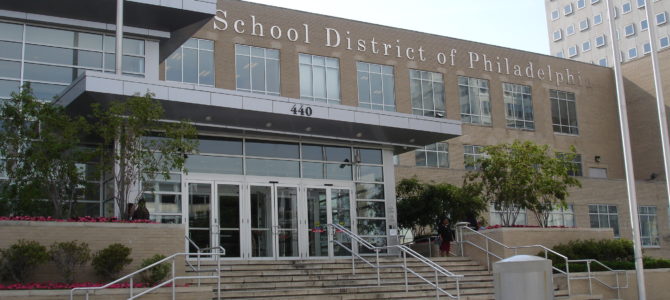
College Board, the most influential college entrance exam group in the United States, included a section in its current Advanced Placement U.S. government practice test that requires students to condemn voter ID laws as racially biased.
The practice exam, made effective in fall 2018, is 34 pages long. On page 16, College Board presents an infographic titled “Voters Without A Government-Issued Photo ID.”

Using information from the left-wing Brennan Center for Justice, the infographic references a survey indicating 25 percent of black Americans lack a government-issued photo ID—or 1 in 4—and that 1 in 10 Americans overall do not have a government-issued ID.
The exam then presents two questions in relation to the graph. The first asks, “Based on the infographic, which of the following claims would an opponent of state voter-ID laws most likely make?” The options are:
- (A) Voter-ID laws are likely to decrease turnout among African American voters because they are less likely to have government-issued IDs.
- (B) Voter turnout will likely decrease by 10% if voters are required to present a government-issued ID to vote.
- (C) Voter-ID laws will likely decrease election fraud, which will increase voter confidence in institutions and thereby increase turnout.
- (D) African American voters who do not have government-issued IDs are likely to participate at the grassroots level and exert influence through channels other than turning out to vote.
The answer sheet indicates that (A) is correct.
https://twitter.com/seanmdav/status/1426289108859727873?s=20
Question number 23 on the practice test asks, “Based on the infographic, which of the following strategies would a group seeking to increase turnout likely pursue?” The options nudge students to support a ban on voter-ID laws, with only one option offering that increasing turnout would happen by getting more people registered. The correct answer, (C), states, “Lobby state legislatures to overturn voter-ID legislation.”
The Brennan Center receives significant funding from George-Soros-backed initiatives, such as the Kohlberg Foundation, Tides Foundation, Proteus Fund, and others. Peter Wood, president of the National Association of Scholars, told The Federalist the Brennan Center’s data underlying the graph is also controversial.
“[Brennan Center] cites various studies to back the data up, mostly a telephone survey,” Wood said. “So, one has to wonder how one gets a telephone without having an ID. There is something a little fishy about the Brennan survey technique to begin with. Lots of other people have expressed skepticism of the accuracy.”
Wood also said people paying attention would be skeptical of such data but students taking the test “don’t have that choice” because they have to operate from the material that’s provided to get the answers.”
In further disagreeing with the test’s framing, Wood offered, “I would think that if you’re concerned that not enough African Americans can vote your first logical step would be to go out and make sure they have government-issued IDs.”
College Board, which was once trusted as a nonpartisan, independent education organization that gatekeeps access to higher education, has become increasingly leftist over the last decade. It hired Common Core architect David Coleman as its president in 2012. A few years ago, it notoriously released one-sided frameworks for its AP European Studies exam that leaves out important thinkers such as Homer, Plato, Cicero, and Virgil. It did the same when revising its Advanced Placement U.S. history (APUSH) exam in 2017.
The APUSH revision has been described by Ethics and Public Policy Center senior fellow Stanley Kurtz as linked to historians seeking to “internationalize” history and implement a “transnational” narrative. For instance, the material describes former President Franklin D. Roosevelt’s controversial “New Deal” as when “Progressive reformers responded to economic instability, social inequality, and political corruption by calling for government intervention in the economy, expanded democracy, greater social justice, and conservation of natural resources.”
“Radical, union and populist movements pushed Roosevelt toward more extensive reforms, even as conservatives in Congress and the Supreme Court sought to limit the New Deal’s scope,” College Board also noted in regards to the New Deal.
Wilfred M. McClay, a professor of history at Hillsdale College and a visiting scholar in American studies at The Heritage Foundation, told The Federalist College Board has squandered its position as the most qualified exam group.
“Under the College Board’s previous leadership, the AP exams were considered the ‘gold standard’ of evaluative standardized testing,” said McClay. “But not anymore. Now the College Board is becoming a purveyor of fiat currency, and its reputation is increasingly suspect.”
College Board did not immediately respond to a request for comment.









